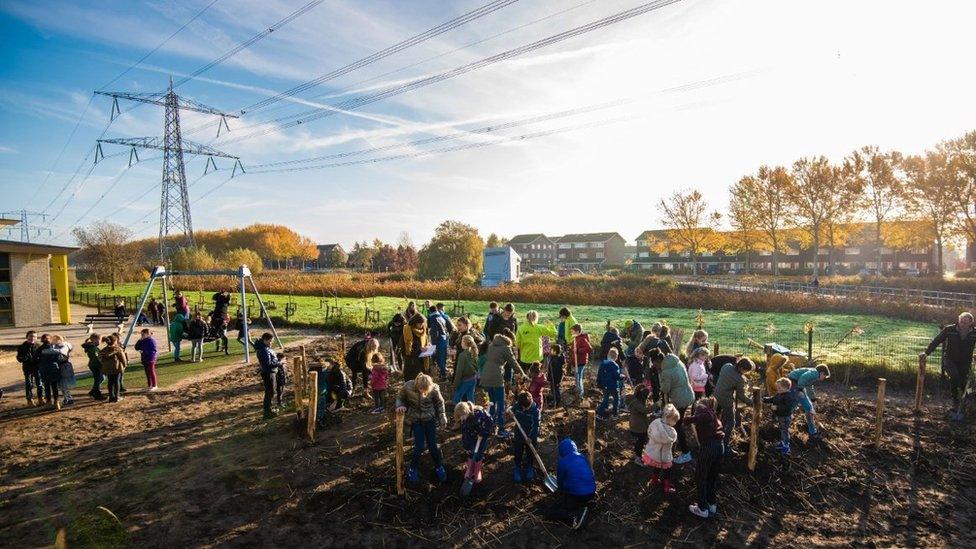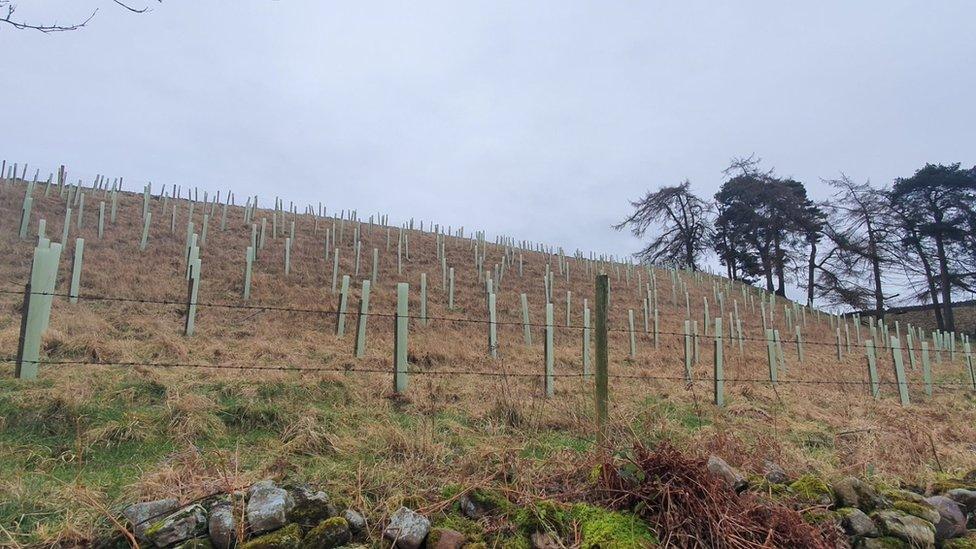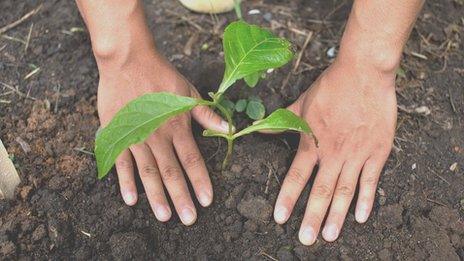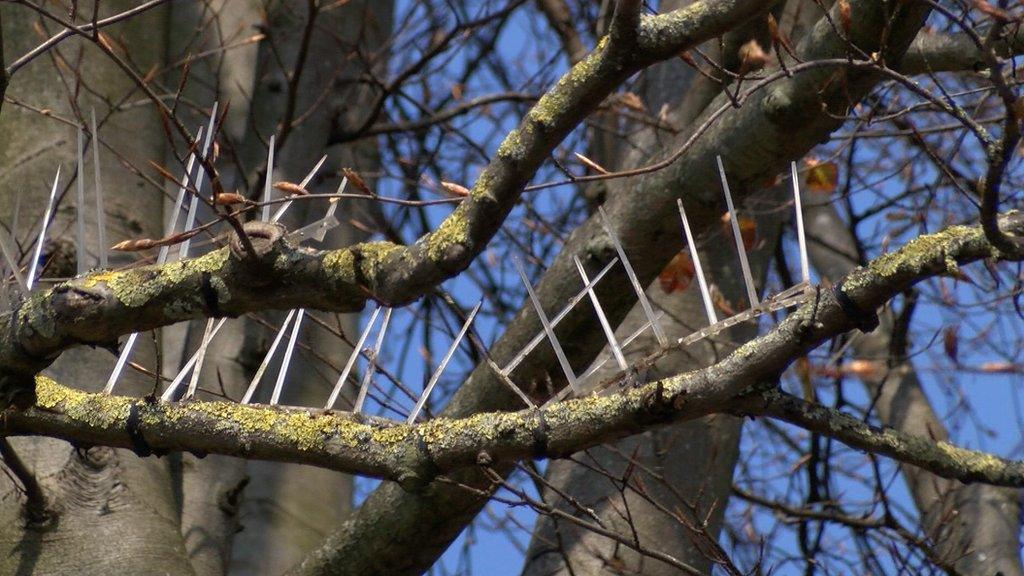'UK's first tiny forest' in Witney helps urban environment
- Published

The tiny forest in Witney is said to be the first of its kind in the UK
A "tiny forest" - said to be the first of its kind in the UK - is being planted in Oxfordshire in a bid to tackle urban wildlife loss.
Six-hundred native trees will fill a 200-sq-m plot - about the size of a tennis court - in Witney, Oxfordshire.
The small, fast-growing and dense forest, planted by environmental charity Earthwatch and Witney Town Council, will mimic native woodland.
The charity said plans were already under way to create another in Oxford.
Tiny forests are based on forest management methods developed in the 1970s by Japanese botanist Dr Akira Miyawaki.
The trees, which are being planted by council staff and volunteers, are able to store carbon, soak up water to reduce flooding, attract wildlife, reduce dust, improve air quality and cut noise pollution.
Earthwatch is bringing the scheme to the UK with the help of Dutch organisation IVN Nature Education, which has planted nearly 100 tiny forests in the Netherlands.
'Ecological crisis'
Earthwatch Europe's senior research lead, Victor Beumer, said: "We are excited to be planting a tiny forest, the first of its kind in the UK, in partnership with Witney Town Council.
"At a time when it seems impossible to overcome the enormous challenge of the climate and ecological crisis, tiny forests offer a collaborative natural solution with far-reaching benefits.
"We hope to inspire individuals, businesses and government to take environmental action, by supporting a tiny forest in their local area."
You may also be interested in:
Witney town councillor Vicky Gwatkin said: "The global environmental crisis focuses the mind but also provides a tremendous opportunity to think outside the box, giving us the confidence to experiment and try new things.
"Tiny forests demonstrate that, far from being a sacrifice, the shift to green can actually provide a range of other community benefits.
"It is a privilege for Witney to have the UK's first tiny forest "
- Published21 February 2020

- Published4 July 2019

- Published17 April 2019
